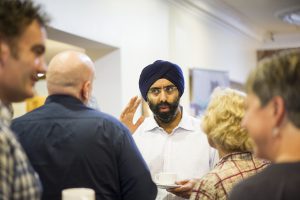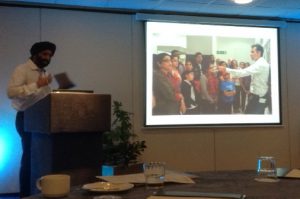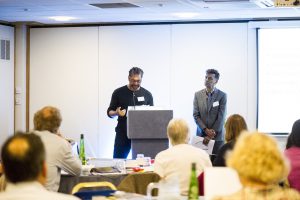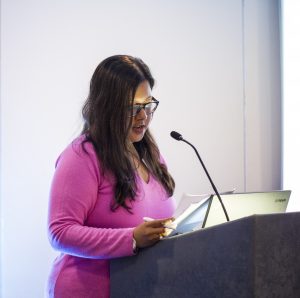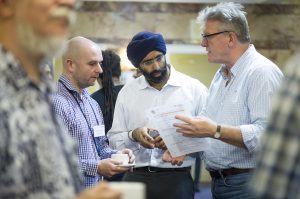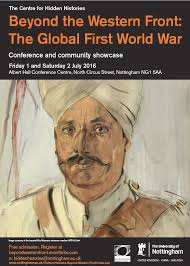
On the 1st and 2nd July 2016, the Centre for Hidden Histories held its major conference and community showcase, ‘Beyond the Western Front – the Global First World War’, at the Albert Hall Conference Centre, Nottingham. Timed to coincide with the centenary commemorations of the Somme, the conference featured a diverse range of academics and community groups. All of the speakers featured were committed to uncovering both the global history of the conflict and some of its ‘hidden’ or less publically discussed histories (click here to access the conference programme and poster).
At the event, participants were surveyed and asked which ‘Hidden History’ they had discovered during the course of the conference. Of twenty-one responses, a number of clusters were identified. Six people said that they had learnt something new about the Eastern Front, in particular Russia, five people cited learning more about the relationship between the Great War and the Chinese Communist Party, four people commented that they had been given more information on Africa’s role in the conflict, four people cited an increase in their knowledge of India’s contribution. Finally, three people mentioned the significance of learning about the treatment of Germans in Britain during World War I.
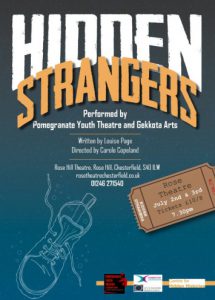
Particularly exciting for the Centre for Hidden Histories was the opportunity to get an update on some of the community co-production projects that the network has been supporting. Dr Natalie Braber and Professor Bill Niven’s collaboration with Pomegranate Youth Theatre and Gekkota Arts, “Hidden Strangers” has just reached its fruition with performances in Chesterfield (2-3 July 2016) and Lincoln (15 July 2016). Exploring the experiences of persecution encountered by Germans living in Britain during World War I, the process of devising the play with young people sought to confront issues such as how representations created by state propaganda and the media contribute to public understandings of perceived social enemies. Click here to see a You Tube video about the project.
Kurt Barling (Middlesex University) and Judith Garfield (Eastside Community Heritage) also reported on their collaboration, ‘Soldiers from Empire’. This project has explored the history of the Middlesex Regiment, in particular the role played by recruits from the Old Commonwealth Dominions and elsewhere in the British Empire. It has resulted in a booklet, film, exhibition and hand tapestry cloth produced by Bush Hill Primary School. The exhibition is hired out to schools, and in its initial six month run it reached over 10,000 children. The film ‘Soldiers of Empire’ which was produced by Middlesex University undergraduates is about to tour a number of film festivals, and is available to watch here. It was also great to listen to papers from our partners Claudia Sternberg (University of Leeds) and David Stowe on the ‘Wrong Place, Wrong Time’ project and Professor Panikos Panayi (Leicester DeMontfort University) and Alison Jones from the Knockaloe Internment Camp & Patrick Visitor Centre, Isle of Man. To listen to Alison’s talk at the conference, please use the media player below:
In addition, we have received positive news that as a result of the Beyond the First World War conference, the Radcliffe on Trent and the First World War community history group may be teaming up with Dr Irfan Malik for a potential future project. Watch this Space!
The conference was accompanied by a film screening of the ‘The Battle of the Somme’ at Broadway Cinema, Nottingham on the afternoon of Sunday 3rd July. The screening which was organised in association with the Imperial War Museum attracted 123 people and featured a discussion and question and answer session with Professor John Beckett, Professor Mike Heffernan and Professor Nigel Hunt.

